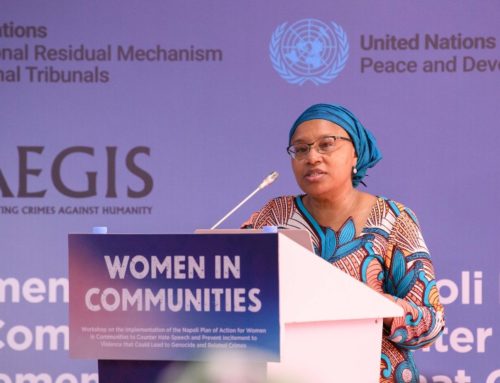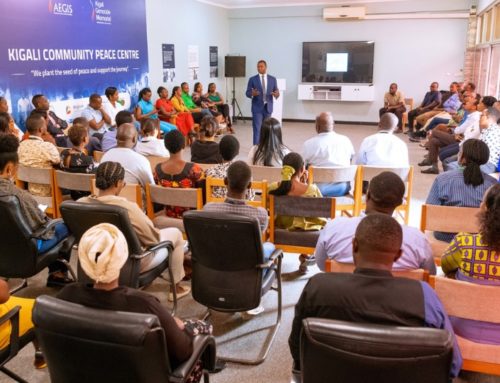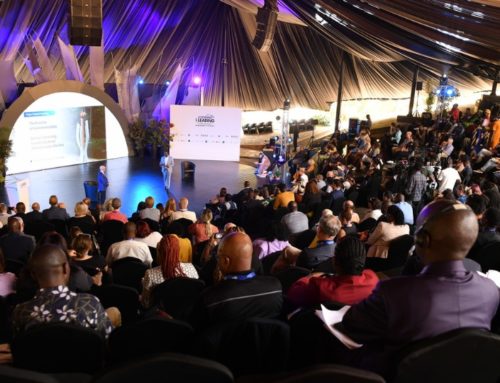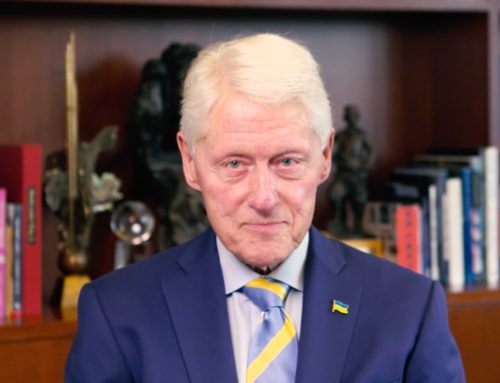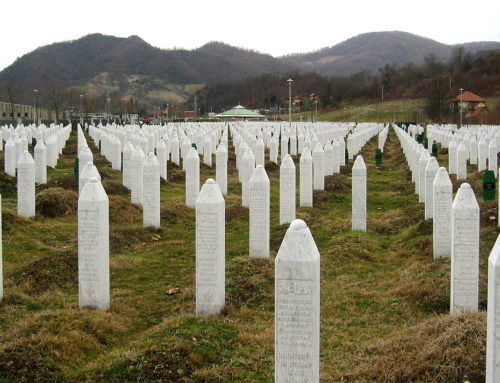Following lobbying by the Aegis Trust, one party has pledged to pursue a specialist convention on Crimes Against Humanity.
In its election manifesto the Labour party writes: “We will advocate a new international convention to enable the prosecution of perpetrators of genocide and crimes against humanity.”
A specialist crimes against humanity convention would, like the Genocide Convention, require states to prevent crimes against humanity. It would also, like the Convention against Torture, require states to incorporate crimes against humanity into their domestic legal codes and introduce an element of universal jurisdiction by requiring authorities to extradite or prosecute suspects found on their territory.
Nick Donovan, head of campaigns at Aegis said, “The Aegis Trust welcomes this announcement. This isn’t a party political matter – I’m sure all parties would agree on the central importance of preventing future crimes against humanity, and ending impunity for perpetrators of mass killings, rapes, slavery, ethnic cleansing and apartheid.”
It’s an accident of legal history that there has never been a Crimes Against Humanity convention. The term was first used by George Washington Williams, an African-American journalist and politician, and Roger Casement, a Irish-British diplomat, who saw the horrors of Belgian rule in the Congo in the 1890s. After being mentioned with regard to atrocities committed in the Ottoman Empire during the First World War, the term took on a formal legal form in the Charter of the International Military Tribunal at Nuremberg. At the suggestion of Sir Hersch Lauterpacht the London conference which drafted the Charter placed the Holocaust and other Nazi atrocities under the heading ‘Crimes Against Humanity’. Unlike Genocide and war crimes committed as Grave Breaches of the Geneva Conventions crimes against humanity were never then codified further – until the advent of the International Criminal Tribunals for Rwanda and the former Yugoslavia and the International Criminal Court (ICC). The result is that, unlike torture and genocide, very few countries explicitly criminalise crimes against humanity.
The Crimes Against Humanity convention would complement the ICC, as the Rome Statute of the ICC envisioned states undertaking most prosecutions for international crimes, with the The Hague only stepping in where a state was unwilling or unable to try the suspect.
The specialist Convention on Crimes Against Humanity is the brainchild of the Whitney R Harris World Law Institute. The steering committee for the initiative includes eminent jurists and academics including: (Chair) Professor Leila Sadat; Professor M. Cherif Bassiouni; Hans Corell, former United Nations Under-Secretary for Legal Affairs; Justice Richard Goldstone, former Justice of the South African Constitutional Court and former Chief Prosecutor of the International Criminal Tribunals for Rwanda and for the Former Yugoslavia; Juan Méndez, President of the International Center for Transitional Justice and former President of the Inter-American Commission for Human Rights; Professor William Schabas, Director of the Irish Centre for Human Rights of the National University of Ireland, Galway; and Judge Christine Van Den Wyngaert of the International Criminal Tribunal for the Former Yugoslavia.
“Crime against humanity” means any of the following acts when committed as part of a widespread or systematic attack directed against any civilian population, with knowledge of the attack:
(a) Murder;
(b) Extermination;
(c) Enslavement;
(d) Deportation or forcible transfer of population;
(e) Imprisonment or other severe deprivation of physical liberty in violation of fundamental rules of international law;
(f) Torture;
(g) Rape, sexual slavery, enforced prostitution, forced pregnancy, enforced sterilization, or any other form of sexual violence of comparable gravity;
(h) Persecution against any identifiable group or collectivity on political, racial, national, ethnic, cultural, religious, gender, or other grounds that are universally recognized as impermissible under international law, in connection with any act referred to in this paragraph or any crime within the jurisdiction of the Court;
(i) Enforced disappearance of persons;
(j) The crime of apartheid;
(k) Other inhumane acts of a similar character intentionally causing great suffering, or serious injury to body or to mental or physical health.
Note. The Aegis Trust is non-partisan and approaches all mainstream political parties with ideas for policies and institutions which will help prevent future mass atrocities and end impunity. The Aegis Trust has in the past organised events with both the leaders of the Conservative and the Liberal Democrat parties.

